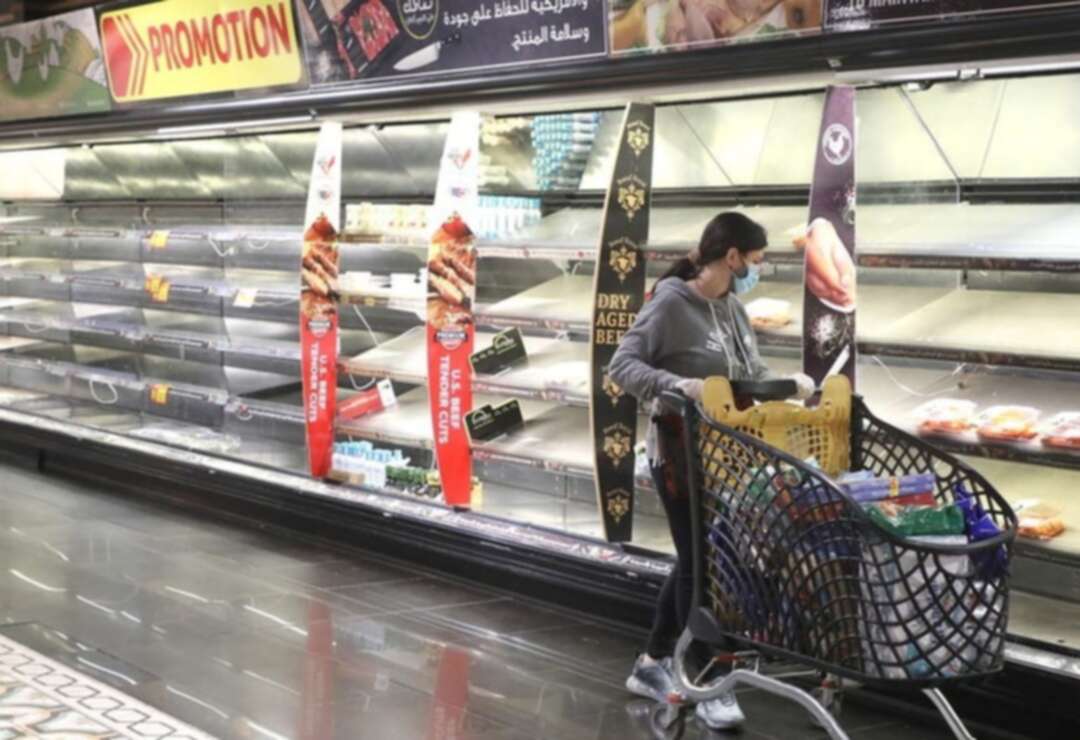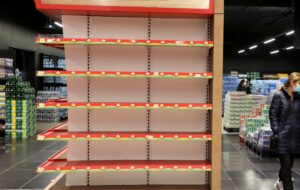-
Lebanon is the most expensive in the Middle East and North Africa region, according to the World Bank

Lebanon’s food prices have become the highest in the Middle East and North African region, as inflation rates continued to soar amid one of the country’s worst economic crises to date, according to the World Bank.
In the World Bank’s periodic assessment of the repercussions brought about by the COVID-19 pandemic on food price inflation in the MENA region, they found that between Feb. 14, 2020 and March 8, 2021, price surged across all food categories.
The country’s inflation rate in 2020 rose to almost 85 percent, Lebanese newspaper The Daily Star reported, adding that it hit its highest point since 1992.
By the end of 2020, inflation stood at 145.8 percent.
The World Bank assessed food prices of five main food categories in 19 different countries across the region, including carbohydrates, fruits, meats, dairy products and vegetables.
Fresh and frozen cattle meat prices jumped by 110 percent during the assessment period, indicating the highest increase in price for this item in the region.
Lebanon, Syria, and Djibouti were the only three countries to record a rise of over 35 percent in this category.
The average price increase in this category across the rest of the region was 11 percent.
 Shoppers walk past an empty shelf at a supermarket in Beirut, Lebanon March 16, 2021. Picture taken March 16, 2021. (File photo: Reuters)
Shoppers walk past an empty shelf at a supermarket in Beirut, Lebanon March 16, 2021. Picture taken March 16, 2021. (File photo: Reuters)The price of eggs increased by an average of 7 percent for the rest of the region while Lebanon, Djibouti, Iran, Syria and Yemen saw a rise of more than 20 percent in the price of eggs.
Potato prices in Lebanon rose by just over 71 percent, accounting for the highest in MENA while the prices of frozen chicken rose by 68.4 percent.
The World Bank also found that the prices of apples and oranges in the country grew by 58.2 and 58.4 percent respectively.
Beirut-based grocery store manager Ziad Hassan told the New York Times on Monday that instead of the daily email from the supermarket chain’s management to inform him to adjust the pricing of grocery items, he began to receive emails as often as three times a day, ordering price increases.
He added that his employees would often not have enough time to finish marking the products with new prices before the next one arrived.
Eighteen months have passed since mass protests against the country’s political class began and since then, the Lebanese lira has lost 90 percent of its value, driving more than half the population below the poverty line, Reuters reported on Friday.
In August 2020, the United Nations estimated that over 55 percent of the country’s population were trapped in poverty and had been struggling for bare necessities, stating that extreme poverty registered a threefold increase from 2019 to 2020.
The country has been grappling with the impact of the Aug. 4 Beirut Port Blast which injured thousands and killed hundreds, extreme hyperinflation, the coronavirus pandemic, and an incompetent ruling class.
source: Tala Michel Issa
Image source: Reuters
Levant
You May Also Like
Popular Posts
Caricature
BENEFIT Sponsors BuildHer...
- April 23, 2025
BENEFIT, the Kingdom’s innovator and leading company in Fintech and electronic financial transactions service, has sponsored the BuildHer CityHack 2025 Hackathon, a two-day event spearheaded by the College of Engineering and Technology at the Royal University for Women (RUW).
Aimed at secondary school students, the event brought together a distinguished group of academic professionals and technology experts to mentor and inspire young participants.
More than 100 high school students from across the Kingdom of Bahrain took part in the hackathon, which featured an intensive programme of training workshops and hands-on sessions. These activities were tailored to enhance participants’ critical thinking, collaborative problem-solving, and team-building capabilities, while also encouraging the development of practical and sustainable solutions to contemporary challenges using modern technological tools.
BENEFIT’s Chief Executive Mr. Abdulwahed AlJanahi, commented: “Our support for this educational hackathon reflects our long-term strategic vision to nurture the talents of emerging national youth and empower the next generation of accomplished female leaders in technology. By fostering creativity and innovation, we aim to contribute meaningfully to Bahrain’s comprehensive development goals and align with the aspirations outlined in the Kingdom’s Vision 2030—an ambition in which BENEFIT plays a central role.”
Professor Riyadh Yousif Hamzah, President of the Royal University for Women, commented: “This initiative reflects our commitment to advancing women in STEM fields. We're cultivating a generation of creative, solution-driven female leaders who will drive national development. Our partnership with BENEFIT exemplifies the powerful synergy between academia and private sector in supporting educational innovation.”
Hanan Abdulla Hasan, Senior Manager, PR & Communication at BENEFIT, said: “We are honoured to collaborate with RUW in supporting this remarkable technology-focused event. It highlights our commitment to social responsibility, and our ongoing efforts to enhance the digital and innovation capabilities of young Bahraini women and foster their ability to harness technological tools in the service of a smarter, more sustainable future.”
For his part, Dr. Humam ElAgha, Acting Dean of the College of Engineering and Technology at the University, said: “BuildHer CityHack 2025 embodies our hands-on approach to education. By tackling real-world problems through creative thinking and sustainable solutions, we're preparing women to thrive in the knowledge economy – a cornerstone of the University's vision.”
opinion
Report
ads
Newsletter
Subscribe to our mailing list to get the new updates!






















